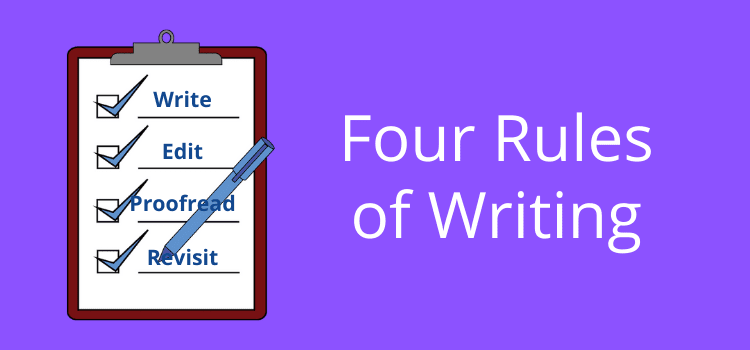
Do you have writing habits that might cause repetition? Let’s look at some tips to help you avoid repeating yourself.
You don’t have any problem at all expressing yourself.
But there are some common writing mistakes that many writers make, often without noticing. In this case, it is repeating yourself.
Readers will notice repetitive words, phrases, or structures in any piece of writing.
10 Ways to avoid repetition in writing
Too much repetition can affect the way readers understand your message.
In turn, it can negatively impact their reaction to your writing.
Perhaps repeating words is a trap because we focus on using keywords for SEO rankings in blog writing.
Or it could be that you often use particular words or phrases repeatedly by habit.
Repetition can occur without even noticing it.
The best way to avoid it is to be aware of the problem and address it where possible.
You can certainly use the Find function in MS Word or other word processors.
But it is restricted in what it can highlight.
There are better ways to check your writing.
The following suggestions might help you reduce and avoid repetition in an article, essay, or book manuscript.
1. Vary your sentences
Repetition isn’t limited to words. Repeating the same sentence structure is very common and is often called invisible repetition.
The problem with sentence structure is caused by starting them in the same way.
Your readers may lose interest in your writing if your sentences lack variety.
He went to visit his doctor.
I wasn’t ready for what happened.
She said she was too tired.
They decided to stay for another week.
To avoid repetition, change your sentences’ rhythm, length, and even syntax to make them more dynamic and exciting for your readers.
After feeling unwell for a few days, he went to his doctor.
A shock for sure, and I wasn’t ready for what happened.
At the end of a long day in the office, she said she was too tired to go out.
The holiday was so enjoyable that they decided to stay for another week.
You don’t want your story to sound like a list of ideas using the same subject-verb form to start your sentences.
Try to find other ways to start your sentences but still convey your message.
2. Use more transition words
The three basic transition words are and, but, and so. They indicate addition, contrast, or reason.
However, they can quickly become repetitive if overused.
Try using variations such as therefore, however, moreover, yet, and consequently.
You can also use firstly, secondly, and finally to help sequence your ideas without repetitive language.
3. Check a thesaurus
A thesaurus comes in handy when you want to eliminate or at least avoid repetition in your writing as much as possible.
You can look up any of your commonly used words and replace them with ones with the same meaning.
You can also use an online grammar checker with an in-built thesaurus to help you.
However, don’t take the use of synonyms too far. You don’t want to fill your writing with complicated words that may not precisely mean what you intended.
When you use a thesaurus, use it wisely and sparingly.
You don’t want your efforts to avoid repeating to appear too obvious.
4. Replace your character’s name with a pronoun
There are words that you can repeat without any problem. That is, your reader is less likely to see them as a repetition.
Pronouns such as he and she fall into this category.
When referring to your characters, using pronouns to avoid repeating the names is useful.
Reading your manuscript aloud will help you find a balance between name and pronoun use.
However, you should ensure that the reader understands who you are referring to or who is talking.
5. Read your writing
You don’t have time to do any manuscript editing as you write your story.
Always work on building your story and ensure that there is a flow of ideas.
But when it comes time to start proofreading the document, you can check for repetitions.
Take notes as you read and mark any words, phrases, or sentences you see being over-used.
You can quickly minimize and reduce repetitive words or phrases by checking your writing carefully.
6. Break up your sentences
Writers love using long sentences.
But long sentences are often great candidates for repetition.
You can use several short sentences to convey the same thoughts to overcome the problem.
As you do this, you can eliminate unnecessary words, such as relative pronouns, that are often part of a long sentence.
Short sentences are also easier to read.
But you still need variety in your writing. To have more impact, consider using a mix of both.
7. Utilize gapping
Gapping in grammar is a technique to remove redundant words or phrases.
Here are two quick examples.
Mary likes playing golf, and her sister likes playing tennis.
I was very happy with my presentation, and my manager was happy, as well.
You can use gapping to remove duplicated verbs, nouns, and phrases.
8. Shorten your paragraphs
According to the American Psychological Association Publication Manual, you can lose readers if they read articles that are longer than one double-spaced manuscript page.
If your paragraphs are too long, you should look for a logical position to break them.
If you can’t, you can try reorganizing your ideas. In a single paragraph, you shouldn’t use more than 125 words.
Readers want to get to the point in the shortest time possible.
9. Be clear in your narrative
You might find yourself rambling a little when you are taken away by your thoughts and jotting them down.
If this happens, highlight your main points and re-write the scene to make it easier for your readers to understand.
It doesn’t mean that you can’t spice up your words. Use succinct but precise words and phrases.
By getting to the point quicker, you will find that you can reduce a lot of unnecessary repetition.
10. You can use the same words
Using repetitive words can help you build a rhythm in your sentences. Some writers play with consonant sound repetition to add emphasis.
The literary device, Anaphora, is the repetition of words or phrases for emphasis. Think here of Martin Luther King’s I Had a Dream speech.
Another use of repetition in literature is called negative-positive restatement. You start with a negative idea and then follow with a positive view.
A classic example is a quote from John F Kennedy, “And so, my fellow Americans, ask not what your country can do for you—ask what you can do for your country.”
It’s fine to repeat some words. As I said earlier, there are words that you can repeat without a problem, such as pronouns.
If you apply deliberate repetition, consciously and strategically, it may prove to be an effective use of your writing skills. A good example of this is using the rule of three in your writing.
In the dialogue of a story, the word “said” is usually invisible to a reader. You can use it as often as you need to.
Also, depending on how your dialogue is structured, you may not need to add a dialogue tag.
This technique helps reduce repetition considerably.
Conclusion
You can avoid most types of repetition quite easily.
You can use some of the tips in this article or do more research to find other ways to help you.
A good writer usually knows the areas where repetition might likely occur.
Every writer has habits or tics and knows they need to find them during editing and proofreading.
The best way to avoid repetition in writing is to recognize your habits so that you can track them down quite quickly.
When you know that you overuse weak words like just, really, very, or quite, you can use the find function in your word processor to locate, delete, or edit them in a flash.
It is the fastest way to find and correct word repetition.
Related reading: Sticky Sentences And Glue Words Can Dilute Your Writing
Share This Article



Good advice, Lisa. In my blog I covered what I call ‘echo words’ that tend to linger in the head when writing and end up being repeated.
I love what you said about reading over what you’ve written, approaching it as reader instead of writer.
Good tips that any writer, old or new, can use!
Great Tips!